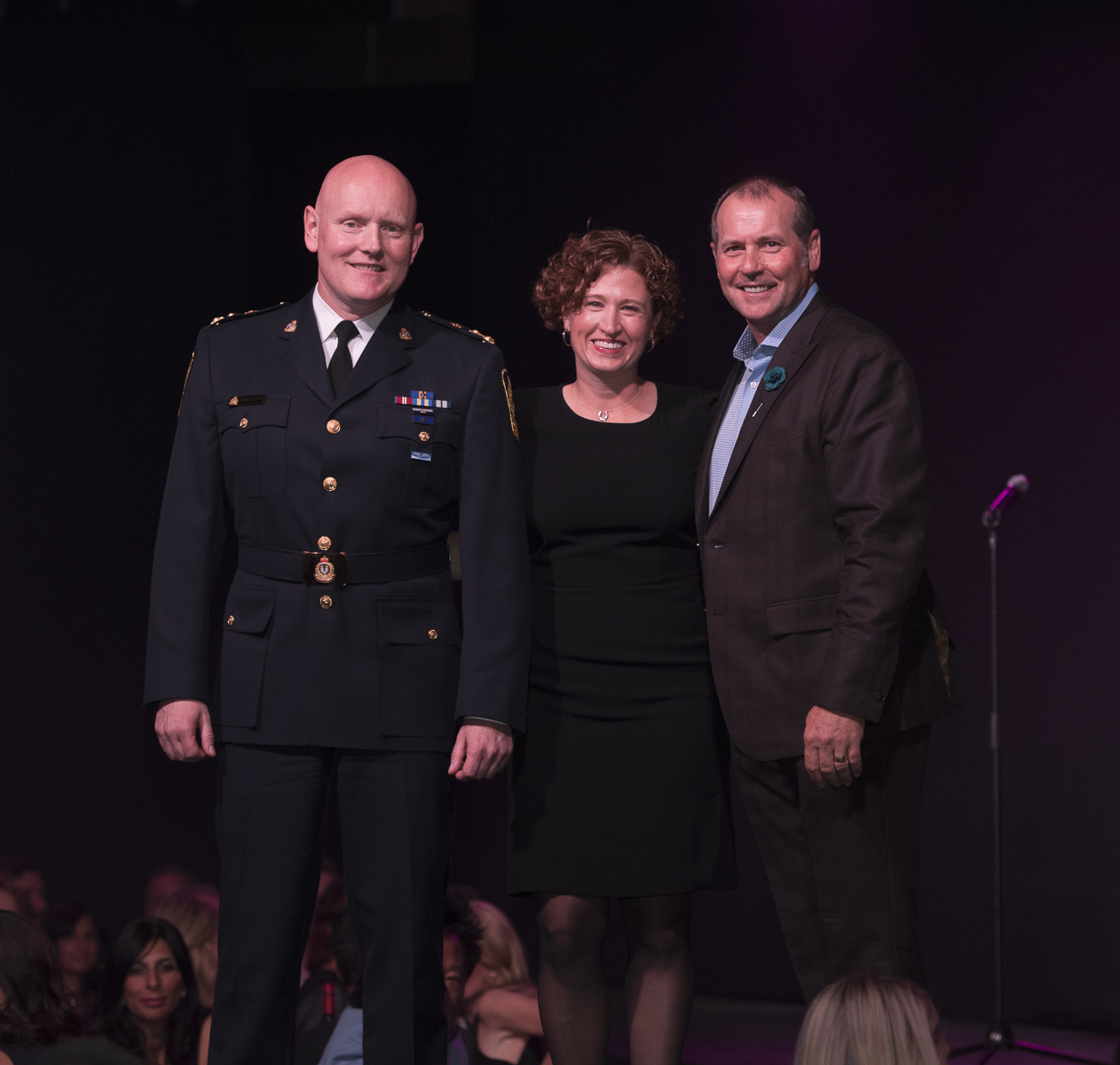The number brought the crowd roaring to its feet.
At Brilliant, the annual fundraiser for St. Paul’s Foundation, president and CEO Dick Vollet announced to the sold-out audience that the gala had raised a record $1.5 million. The fancy evening, held at Rocky Mountaineer Station and encompassing dance, singing, mixed media, and fashion, as well as a lively auction, is the foundation’s yearly community draw—a chance to raise both money for St. Paul’s Hospital’s mental health and addiction services and awareness about the health issues facing the city.
Chances are everyone in Vancouver has been touched by addiction or mental health in some way, whether it be that they are personally afflicted or that a loved one is. Collectively we’ve stood for too long in the shadow of stigma, letting shame and ignorance control the dialog. St. Paul’s has been working for years to change that, but it can only succeed with the public’s help.
“Over the last five years within the community, the conversation has changed quite a bit—a lot of work has been done destigmatizing mental illness and addition,” says St. Paul’s Hospital program director of mental health Jen Duff. “I think we’re getting there, but I don’t think we’re quite there yet. I think events like Brilliant really help to put mental illness and addiction in the forefront, right on top of mind.” It’s a subject perhaps more crucial now than ever, as the Lower Mainland’s fentanyl crisis continues to take lives. “The time is now to really put mental health and addiction on the forefront, to put it on people’s radar,” says Duff. “Many people affected by it. It’s not just individuals who are more vulnerable in society—it’s affluent people, middle-class people.” She points to the sobering facts, which suggest that two out of five Canadians will either suffer from, or know someone who suffers from, mental illness in their lifetime.
Last year, St. Paul’s Hospital emergency saw over 10,500 patients come through with mental heath or substance use issues—a jump of more than 112 per cent over the last six years. For the hospital, the $1.5 million raised by the foundation (including $750,000 from the Vancouver Police Foundation) will primarily go towards building a new treatment house called The Hub. “It will increase the capacity in emergency by 10 spaces in an area adjacent to the St. Paul’s Hospital building,” explains Duff. “In addition to The Hub, we’re creating a transitional unit in partnership with the Vancouver Police Foundation … That will be eight spaces also adjacent to St. Paul’s where patients will be discharged to a transitional centre and met there with community resources, social workers, peer support, and treatment teams who will come in and work with the patients and transition them back into the community.” It is modelled after the St. Michael’s Hospital’s Rotary Transition Centre in Toronto, which Duff says saw a 70 per cent reduction in patients returning to the hospital with the need for additional attention. “For me and for the patients that we serve, it’s really important that we have the right space so that when patients come to the hospital, they have the best clinical care and the best physical environment for their care,” Duff says. The Hub is the next big push for the hospital, which is aiming at breaking ground on its new facility near Main and Terminal in 2018.
In its four-year existence, Brilliant has raised over $3.5 million for St. Paul’s Foundation, allowing the hospital to continue serving our city to the best of its ability. “Brilliant really helps to put [mental health and addiction] on the forefront and destigmatize the issues completely,” Duff emphasizes. “I describe the night as ‘brilliant’ because it’s outrageous, fun, light, and it brings the community together.” All in the name of a deeply important cause.
Read more on science and medicine.









